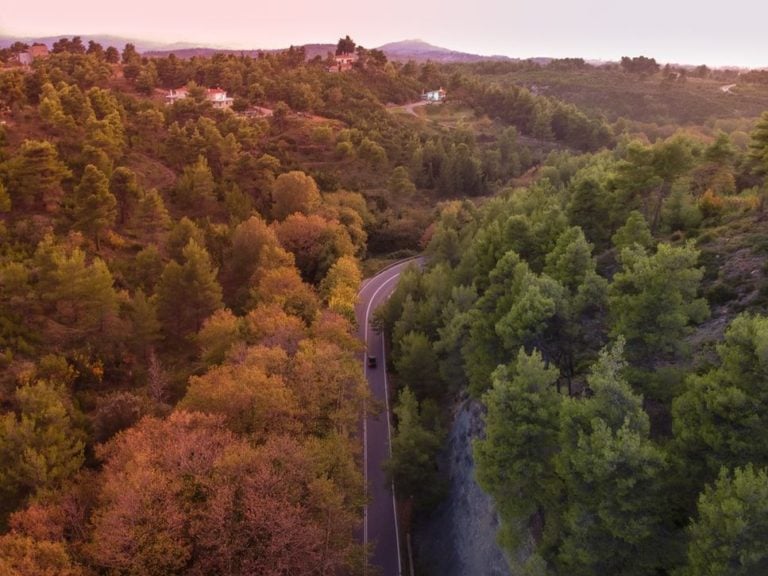Greek property owners, within Greece and abroad, are invited to prove that the real estate they possess in Greece is not within a forest region – and they have only six months to do so.
The definition of what constitutes forest land in Greece is complicated. According to Greek Law, regions with nary a tree may still be designated as ‘forest areas’ by state services, due to the fact that the designation process may have taken place over a decade ago while certain shrubs may also be used to define forestry.
The Greek land registry (ktimatlogio.gr/categories/dasikoi-hartes) and recent maps of gis.ktimanet.gr/gis/forestsuspension were created to help property owners understand what their land is defined as, and the results have left many property owners scratching their heads. A number of errors have been noted as changes to land use and previous decisions have been overlooked resulting in erroneous classifications by the state which landowners are left sifting through property deeds and changes of titles as they are left with the burden of sorting out any misclassifications.
READ MORE: Could you be the owner of an ancestral property in Greece which has been long forgotten?
Updated Greek forest registry maps classify 60 per cent of Greece as forest terrain, up from 55 per cent in 1945. Islands of the Dodecanese have noted a 10.6 per cent increase, whereas the Ionian island of Lefkada has noted a 35.4 per cent spike.
As agricultural-based industries are on the decline, areas classified as grasslands are expanding with the average increase in their expanse at 652 per cent led by the island of Mytilene (1158.7 per cent increase), and followed by Samos at 1045 per cent.
One of Greece’s EU obligations under recent bailout agreements has been to complete its land registry by 2021 and despite the problems caused by the confusing laws, history and all manner of red tape, the government hopes to complete 90 per cent of the National Land Registry by the end of the year.

The completion of the forestry registry, apart from helping landowners to cut through the ‘red tape’ and have clarity and structure regarding their property, will also bring huge benefits to the environment. As such, maps showing the boundaries of forestry regions are constantly being defined by the updated registry which relies on comparative studies of previous expanses (from the examination of aerial photos, especially those of 1945 and 1960 in some cases) with those of today.
Greece’s municipalities have had to declare their properties to the Hellenic Land Registry but this has been arduous as, in many cases, they do not have the necessary ownership deeds, according to the association of companies undertaking cadastral projects (SEGEK). The companies highlighted these problems to Greece’s Digital Governance Minister Kyriakos Pierrakakis, and stressed the reduced participation of public bodies in the cadastral areas, three years since its inception.
SEGEK President Sotiris Liaros said “the biggest problem are the municipalities that are looking for and cannot find ownership titles for schools, municipal buildings, squares, etc”.
READ MORE: Greece raises issue of war reparations with Germany on 80th anniversary of Nazi Occupation
The forestry maps, at this point, do not encroach on citizens’ ownership interests, however if an area is classified as a forestry region, the landowner has limitations as to its use as far as building and development are concerned and is not entitled to redefine these unless they have deeds or proof of previous change.
In all of Greece, with the exception of Ionian islands, Crete, Lesbos, Chios and the Cyclades, as well as Kythera and Antikythera, as well as regions around the Mani, each forest expanse is considered to be of public ownership unless a property owner can present ownership titles.
How to appeal forestry classifications
Property owners who wish to appeal decisions as to the classification of their land need to do so as soon as possible. Greek property owners living abroad have only 105 days to act, whereas Greek residents have only 20 days to submit their claims from the date their property is classified on forestry maps as regions appear, with land classifications already having been uploaded in January and many more in February.
Landowners abroad have from May to June to object to classifications, depending on where their property is located.
Noteworthy is the fact that the government has given a six-month extension to the appeal process bearing in mind the number of objections.
“The updated maps bring numerous unpleasant surprises for owners as they realise that their property is classified as a forest area,” Dimokratia journalist Vasilis Papakonstantopoulos told Neos Kosmos drawing from his experience in covering matters of environment and infrastructure. “Many of (the owners) realise that they cannot submit their objections as the appeals are available only for the restructured areas of the maps.
The appeals are not hassle free as they are accompanied by fees and stamp duties.
READ MORE: Do you have unregistered property in Greece? Draft bill on regulations and urban development
More than just a classification conundrum
Apart from the forestry conundrum is the scourge of thousands of illegally built structures outside town planning zones which have sprung up as ‘settlements’ and have been hooked up with utilities only to be later legalised by remedy laws. Building on squatted state land is also not unheard of in Greece with ownership claims defined after 25 years of property use.
The Hellenic Cadastre hopes to put an end to the murky environment however there is much commotion until this is completed. To find out more about forest maps, visit www.ktimatologio.gr and ktimanet.gr/CitizenWebApp/PinakasSYADX.aspx